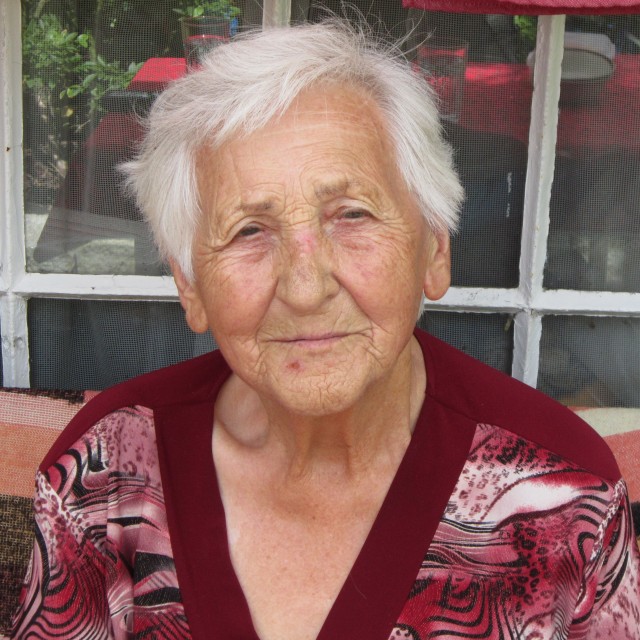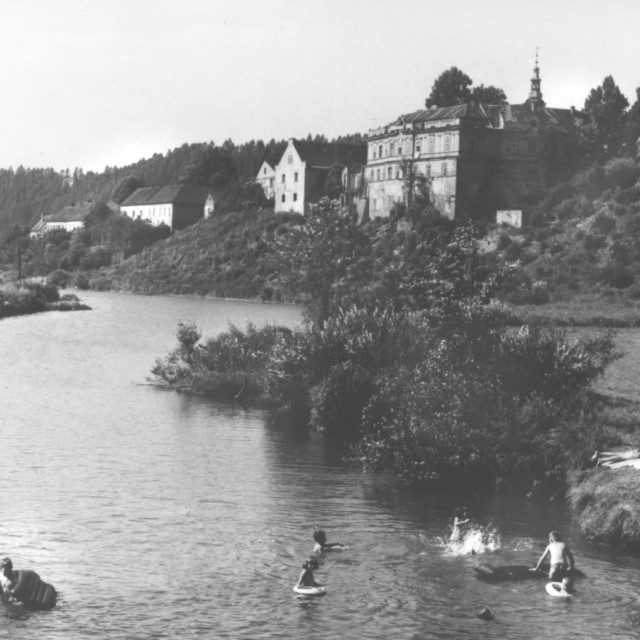Only four came back
Dagmar Hanzlová spent the war years in the now flooded village of Dolní Kralovice. Before the war, a large Jewish community lived in the village. She recalls that before the local Jews were deported to Theresienstadt in 1942, her father gave some water to their Jewish neighbor Hugo Schwarc. After this was revealed to the Nazis by their neighbors, they nearly ended up in a Nazi prison. Her father was hiding foodstuff and other things that belonged to a friend of him in the attic. These provisions were supposed to be handed over to the authorities serving the war needs of the Reich. “The Gestapo came to search our place. In our attic, there were about twelve quintals of grain, cloth, an iron pot full of lard, a fifty-kilo box of sugar cubes. We would have gone to jail for that, the whole family. We had an advantage because my mother spoke perfect German. That was a huge plus already. One of the older Gestapo agents noticed that my dad had an amputated leg and he asked him where he had lost it. My father told him that he had fought at the Masurian lakes in Poland. The Gestapo man said: ‘me too’. And that was it. There was no search. They left and saluted my father.” Dagmar Hanzlová remembers other Jewish families from Dolní Kralovice. For example the Bauers, whose sons died while trying to escape across the border. Their parents came to say goodbye to them just before the transport to Theresienstadt. None of them has ever returned from the concentration camps. “Their parents had a shop with artificial flowers and they were really good people. They came to say goodbye to my mother and they said: ‘we know that we’ll never see you again’. They were right.” Dagmar Hanzlová likes to remember her fellow Jewish citizens from Dolní Kralovice. Of those 147 deported to Theresienstadt, only four reportedly came back after the war.
Hodnocení
Hodnotilo 0 lidí
Trasy
Příběh není součastí žádné trasy.
Komentáře
Žádné komentáře k příběhu.


